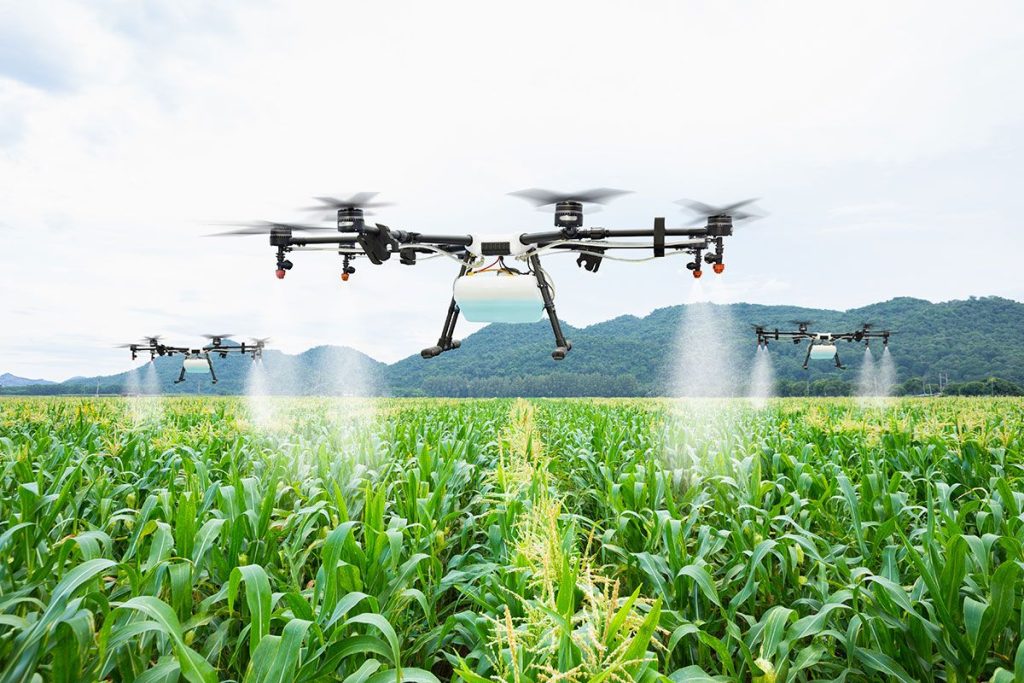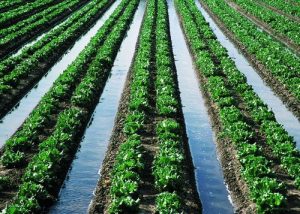Agriculture, often referred to as the backbone of civilization, has played a pivotal role in shaping human societies throughout history. In this era of technological urbanization, the significance of agriculture remains as pronounced as ever. From the sustenance of life to economic prosperity, the importance of agriculture permeates every facet of our existence.
In human history, agriculture emerges as a thread that weaves through the fabric of our survival and progress. As we embark on this exploration, the focal point is the pivotal role played by agriculture in shaping our world.

15 Importance of Agriculture
- Food Security: Agriculture is the bedrock of our global food supply. It ensures a steady and reliable source of nourishment for the world population.
- Economic Backbone: The agricultural sector serves as a key driver of economic growth, providing livelihoods to millions and contributing significantly to national GDPs.
- Biodiversity Conservation: Farming practices, when sustainable, contribute to the preservation of biodiversity by maintaining ecological balance.
- Rural Development: Agriculture is intricately linked to rural development, fostering infrastructure, and enhancing the overall quality of life in rural communities.
- Raw Materials for Industries: Various industries, including textiles and pharmaceuticals, rely on agricultural products as raw materials, highlighting its crucial role in industrial processes.
- Employment Generation: The agricultural sector is a prolific job creator, offering employment opportunities to a significant portion of the global workforce.
- Carbon Sequestration: Certain agricultural practices aid in carbon sequestration, mitigating the impacts of climate change by trapping carbon dioxide in the soil.
- Cultural Heritage: Agriculture is deeply embedded in the cultural fabric of societies, shaping traditions, festivals, and rituals.
- Land Resource Management: Sustainable farming practices contribute to effective land management, preventing soil degradation and erosion.
- Global Trade: Agricultural products form a substantial part of international trade, fostering economic relationships between nations.
- Renewable Energy Source: Biomass derived from agricultural waste serves as a renewable energy source, reducing dependency on non-renewable fuels.
- Medicinal Resources: Many pharmaceuticals are derived from plants, emphasizing the crucial role of agriculture in the healthcare industry.
- Water Conservation: Efficient agricultural practices contribute to water conservation, a critical aspect in the face of increasing water scarcity.
- Poverty Alleviation: Agriculture has the potential to uplift impoverished communities by providing them with a means of sustenance and income.
- Innovation and Technology: The agricultural sector is at the forefront of technological advancements, from precision farming to the use of drones, enhancing efficiency and productivity.
Read also: Problems of agriculture in Nigeria
In-Depth Exploration: Unraveling the Importance of Agriculture
Food Security
Agriculture is the cornerstone of global food security. The cultivation of crops and the rearing of livestock ensure a constant and abundant supply of food. From ancient farming practices to modern agribusiness, the primary goal has always been to meet the nutritional needs of the population.
Economic Backbone
The economic importance of agriculture cannot be overstated. Beyond providing sustenance, agriculture forms the backbone of the economy in many nations. It encompasses not only traditional farming practices but also agribusiness, agro-processing, and exports, contributing significantly to a country’s gross domestic product (GDP).
Biodiversity Conservation
Sustainable agricultural practices are integral to biodiversity conservation. By maintaining diverse ecosystems on farmlands, farmers contribute to the preservation of plant and animal species. This, in turn, fosters a balanced and resilient environment.
Rural Development: Cultivating Progress in Communities
The relationship between agriculture and rural development is symbiotic. Agricultural activities stimulate the growth of rural areas by providing employment, income, and infrastructure development. This, in turn, enhances the overall quality of life in these communities.
Raw Materials for Industries: A Farm-to-Factory Connection
Industries rely heavily on agricultural products as raw materials. From cotton for textiles to sugarcane for sugar production, agriculture forms an essential link in the supply chain of various industries, underscoring its indirect impact on global economic activities.
Employment Generation
Agriculture is a prolific job creator, especially in developing countries where a significant portion of the population is engaged in farming. From sowing seeds to harvesting crops, numerous hands are involved in the intricate process of bringing food from farms to tables.
Carbon Sequestration
Certain agricultural practices, such as cover cropping and agroforestry, contribute to carbon sequestration. This process involves capturing and storing carbon dioxide from the atmosphere in the soil, playing a role in climate change mitigation.

Cultural Heritage
Agriculture is deeply ingrained in the cultural heritage of societies around the world. Traditional farming practices, harvest festivals, and agricultural rituals form an integral part of cultural identities, connecting communities to their agrarian roots.
Land Resource Management
Sustainable farming practices are crucial for effective land resource management. Soil conservation, crop rotation, and agroecological approaches help prevent soil degradation, erosion, and loss of arable land.
Global Trade
Agricultural products play a vital role in global trade. Nations engage in the export and import of various agricultural commodities, fostering economic relationships and contributing to the interconnectedness of the global economy.
Renewable Energy Source
Agricultural waste, such as crop residues and animal manure, serves as a renewable energy source. Biomass can be converted into bioenergy, offering a sustainable alternative to non-renewable fuels.
Medicinal Resources
Plants have been a source of medicinal compounds for centuries. Many pharmaceuticals are derived from plants, highlighting the intrinsic connection between agriculture and the healthcare industry.
Water Conservation
Efficient agricultural practices contribute to water conservation. Through technologies like drip irrigation and rainwater harvesting, farmers can optimize water usage, addressing the pressing issue of water scarcity.
Poverty Alleviation: Sowing Seeds of Prosperity
Agriculture has the power to alleviate poverty by providing livelihoods to rural communities. When coupled with education and technology, farming becomes a catalyst for economic empowerment, lifting communities out of poverty.
Innovation and Technology
The agricultural sector is at the forefront of innovation and technology. From precision farming, where data-driven decisions optimize crop yields, to the use of drones for monitoring vast expanses of farmland, technology is transforming agriculture, making it more efficient and sustainable.
Why Agriculture is The Future
As we stand at the cusp of the future, the importance of agriculture becomes even more pronounced. Several factors underscore agriculture’s role in shaping the trajectory of humanity.
Climate change poses significant challenges to food production, necessitating innovative and sustainable agricultural practices. The need for increased food production to feed a growing global population further emphasizes the crucial role of agriculture in the coming years.
Technological advancements, including precision agriculture, genetic engineering, and digital farming, are poised to revolutionize the way we cultivate and harvest crops. These innovations hold the key to increased productivity, reduced environmental impact, and the efficient use of resources.
Moreover, the interconnectedness of global economies underscores the importance of international cooperation in addressing agricultural challenges. Collaborative efforts in research, technology transfer, and sustainable practices are essential for ensuring food security on a global scale.

The Bottom line
The importance of agriculture is not merely confined to the cultivation of crops and rearing of animals; it extends far beyond, encompassing economic prosperity, environmental sustainability, and societal well-being. Agriculture is a tapestry woven with threads of tradition, innovation, and resilience.
As we navigate the challenges of the future, the agricultural sector stands as a beacon of hope and opportunity. It is a realm where the seeds of progress are sown, nurturing not only crops and animals but also the foundation of human civilization. The symbiotic relationship between humanity and agriculture continues to evolve, and as stewards of the land, we must tread carefully, embracing sustainable practices that ensure a bountiful harvest for generations to come.

